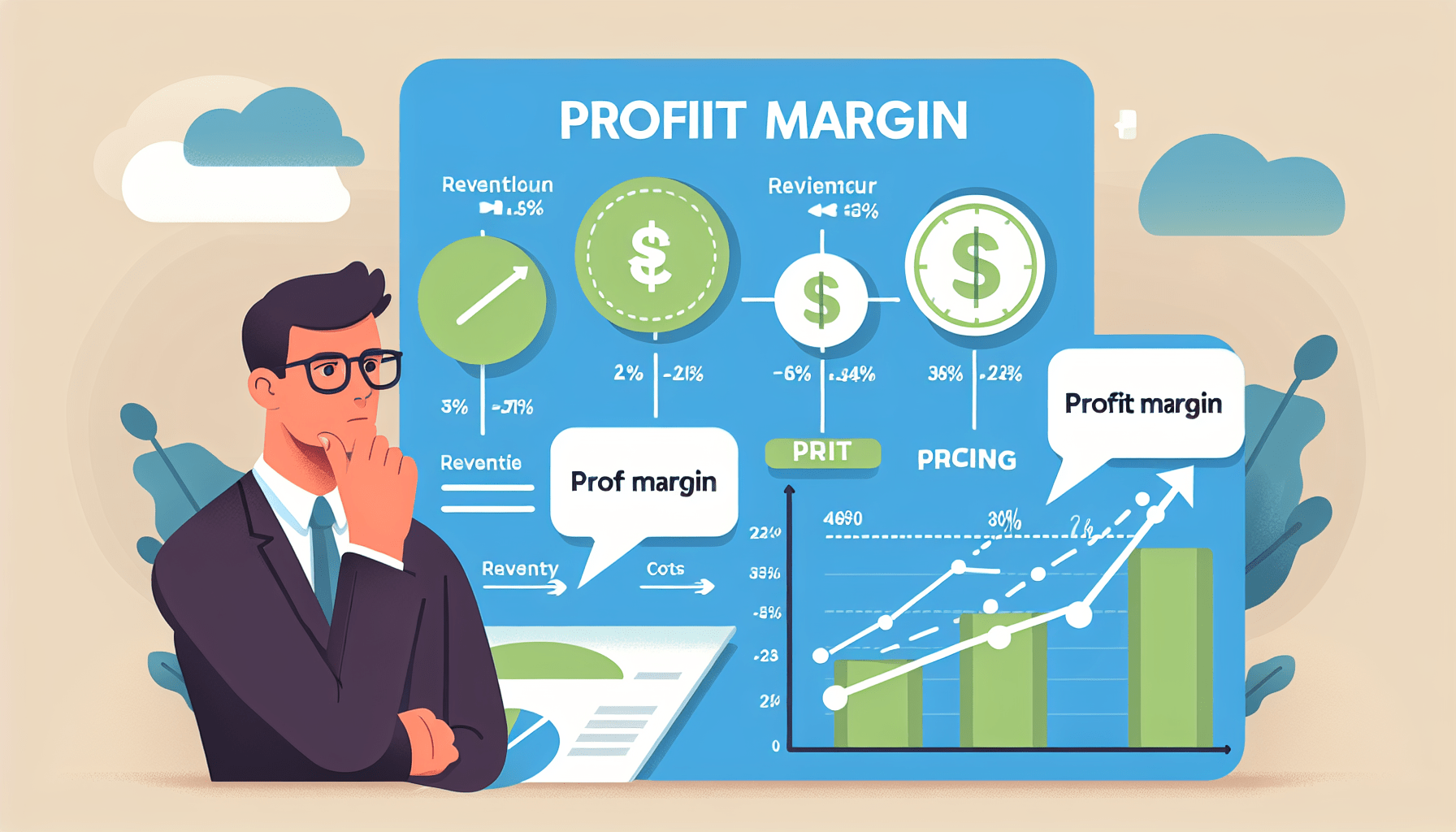What Determines A Business Expense?
Have you ever wondered what factors determine whether a certain cost can be classified as a business expense? Understanding what determines a business expense is essential for entrepreneurs and business owners alike. From tax deductions to budgeting and financial planning, knowing the criteria for defining business expenses can make a significant difference in the financial success of a company. In this article, we will explore the key factors that determine whether an expenditure qualifies as a business expense, providing you with valuable insights to navigate the world of business finance effectively. So, let’s dive in and uncover the secrets behind determining a business expense.

Definition of Business Expense
A business expense refers to any cost incurred during the course of running a business. It is an essential part of operating activities and is necessary to ensure the smooth operation and growth of a business. Business expenses can include a wide range of expenditures, such as employee salaries, rent and utilities, office supplies, marketing and advertising, travel and entertainment, insurance, professional services, and taxes and licenses. These expenses are directly related to the business’s operations and are considered reasonable in order to achieve the business’s objectives.
Types of Business Expenses
Employee Expenses
Employee expenses include costs related to hiring and maintaining a workforce. This can include salaries, wages, benefits, and training expenses. As employees are crucial to the success of a business, their costs are considered necessary expenses.
Rent and Utilities
Rent and utilities expenses encompass the costs of leasing or owning business space, as well as the payments for essential services such as electricity, water, and internet. These expenses are essential for providing a physical location for the business’s operations.
Office Supplies
Office supplies are items necessary for the day-to-day functioning of a business, such as pens, paper, printer ink, and other stationary. These expenses are vital for ensuring the smooth flow of administrative tasks and maintaining an organized workplace.
Marketing and Advertising
Marketing and advertising expenses include costs incurred in promoting the business’s products or services. This can involve strategies like online advertising, print advertising, social media campaigns, and participation in trade shows. These expenses are necessary to attract customers and increase visibility in the market.
Travel and Entertainment
Travel and entertainment expenses refer to costs associated with business-related travel and entertaining clients, partners, or employees. This can include airfare, accommodations, meals, and entertainment expenses. These expenses play a crucial role in building relationships, closing deals, and expanding business opportunities.
Insurance
Insurance expenses cover the costs of insuring the business against various risks, such as property damage, liability claims, and employee injuries. Having adequate insurance coverage is essential for mitigating potential losses and protecting the business’s assets.
Professional Services
Professional services expenses include fees paid to external consultants, lawyers, accountants, and other professionals who provide specialized advice or services to the business. These expenses are necessary to ensure compliance with regulations, maintain accurate financial records, and seek expert guidance.
Taxes and Licenses
Taxes and licenses expenses encompass the costs associated with fulfilling tax obligations and obtaining necessary licenses and permits. It includes payments for income tax, sales tax, payroll tax, and any licenses relevant to the business’s industry. These expenses are essential for operating legally and maintaining good standing with regulatory authorities.
Deductible vs Non-Deductible Expenses
Deductible Expenses
Deductible expenses are those that can be subtracted from a business’s taxable income when calculating its tax liability. These expenses are considered ordinary and necessary for the business’s operations and are deductible under the tax laws. Examples of deductible expenses include employee salaries, rent, office supplies, marketing expenses, and professional services fees.
Non-Deductible Expenses
Non-deductible expenses, on the other hand, are costs that cannot be deducted from a business’s taxable income. These expenses are typically of a personal nature or are not directly related to the business’s operations. Examples of non-deductible expenses include personal commuting expenses, fines or penalties for legal violations, and expenses related to personal hobbies or activities.
Determining Business vs Personal Expenses
Exclusive Business Use
In order for an expense to be considered a business expense, it must be exclusively used for business purposes. This means that the expense should not have any personal component or benefit attached to it. For example, if you use a vehicle for both personal trips and business-related transportation, only the portion of expenses directly related to business use can be considered a business expense.
Primary Purpose Test
The primary purpose test examines whether the expense’s primary purpose is for business use. Even if there is some personal benefit attached to the expense, it can still be considered a business expense if the primary purpose is business-related. For instance, if you attend a conference in a location where you can also meet with family or friends, the expenses related to attending the conference would still be considered a business expense.
Proportionate Use Test
The proportionate use test is used when an expense has both personal and business components. In these cases, the expense can be allocated proportionally based on the business and personal use. For example, if you use a home office for both personal activities and business operations, you can allocate a portion of your home’s expenses, such as rent, utilities, and maintenance, as a business expense based on the percentage of space used for business activities.

Accounting Methods for Business Expenses
Cash Method
The cash method of accounting recognizes business expenses when the payment is actually made. Under this method, expenses are recorded when cash is disbursed, regardless of when the expense was incurred. This method is commonly used by small businesses and provides a simple way to track expenses.
Accrual Method
The accrual method of accounting recognizes business expenses when they are incurred, regardless of when the payment is made. Under this method, expenses are recorded at the time the goods or services are received, even if payment is delayed. This method provides a more accurate representation of the business’s financial position and is often used by larger businesses.
Hybrid Method
The hybrid method combines elements of both the cash method and the accrual method. Under this method, some expenses are recorded using the cash method while others are recorded using the accrual method. Small businesses with certain types of inventory may choose to use the hybrid method in order to simplify recordkeeping.
Recordkeeping for Business Expenses
Importance of Accurate Records
Accurate recordkeeping is essential for proper management of business expenses. Keeping detailed and organized records allows businesses to track their financial transactions, assess profitability, and provide evidence in case of an audit. It is important to maintain accurate records to support the deductibility of expenses and to ensure compliance with tax laws and reporting requirements.
Types of Records to Maintain
Businesses should maintain various types of records to support their expenses, including receipts, invoices, bank statements, cancelled checks, and credit card statements. These documents should clearly show the nature of the expense, the amount paid, the payee or vendor, and the date of the transaction. It is also important to keep records of any agreements, contracts, or legal documents related to the expenses.
Record Retention Periods
Businesses should be aware of the record retention periods required by tax authorities and other regulatory bodies. Generally, it is recommended to retain records for a minimum of three to seven years, depending on the nature of the expense and the applicable laws. Keeping records for the required period ensures that businesses have the necessary documentation in case of an audit or any potential disputes.

Common Mistakes in Identifying Business Expenses
Mixing Personal and Business Expenses
One common mistake is failing to distinguish between personal and business expenses. Mixing these expenses can result in inaccurate financial records and potential problems during tax filing or audits. It is important to keep personal and business expenses separate by maintaining separate bank accounts, credit cards, and records.
Excessive or Unreasonable Expenses
Claiming excessive or unreasonable expenses can raise red flags during tax audits. Business expenses should be both ordinary and necessary for the operation of the business. It is important to exercise caution and ensure that expenses are reasonable and directly related to the business’s operations.
Lack of Proper Documentation
Failing to maintain proper documentation can result in the disallowance of business expenses during tax audits. It is crucial to keep detailed records of all business expenses, including receipts, invoices, and any other relevant documents. Without proper documentation, it may be challenging to prove the legitimacy and deductibility of expenses.
Tax Implications of Business Expenses
Tax Deductions
Business expenses play a crucial role in reducing a business’s taxable income. Deductible expenses can be subtracted from the business’s revenue, resulting in a lower taxable income and a potentially lower tax liability. Properly identifying and documenting business expenses can maximize tax deductions and improve the business’s financial position.
Tax Credits
In addition to deductions, certain business expenses may qualify for tax credits. Unlike deductions, which reduce taxable income, tax credits directly reduce the tax liability dollar for dollar. Businesses should explore available tax credits, such as those related to research and development, energy efficiency, or hiring certain employees.
Reporting and Documentation
Reporting business expenses accurately and comprehensively is crucial for complying with tax laws. Businesses must use appropriate tax forms, such as Schedule C for sole proprietors or Form 1120 for corporations, to report their expenses. Supporting documentation, such as receipts and invoices, should be maintained and provided as evidence if requested by tax authorities.

Auditing Business Expenses
Internal Auditing
Internal auditing involves reviewing and assessing a business’s expenses internally. It helps identify any errors, discrepancies, or potential fraudulent activities related to expenses. Internal audits promote transparency, accuracy, and compliance with financial policies and procedures.
External Auditing
External auditing is conducted by independent auditors who review a business’s financial statements and records. They assess the accuracy and reliability of financial information, including expenses, and provide an objective opinion on their fairness and compliance with accounting standards. External audits are typically required for larger businesses or when seeking external financing or investments.
Conclusion
Understanding and properly managing business expenses is vital for the success and financial well-being of a business. By identifying the types of business expenses, distinguishing between deductible and non-deductible expenses, determining business versus personal expenses, and adopting appropriate accounting and recordkeeping methods, businesses can ensure compliance with tax laws, maximize deductions, and maintain accurate financial records. By avoiding common mistakes and staying informed about tax implications, businesses can confidently navigate the complex world of business expenses and contribute to their long-term growth and profitability.


